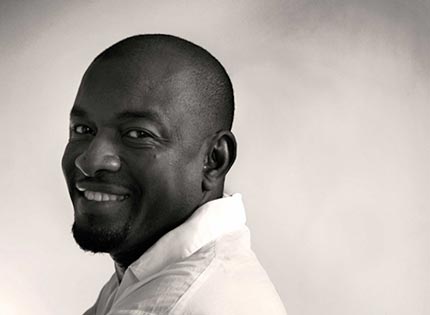Results: 2 to 2 of 4
Chébli Msaïdie
Country Comoros Genres fusion rumba taarab Website www.sinaperformance.fr Festival Sauti za Busara 2012 Recordings 📼 Swahili Songs (1998); Promesses (2002); Jua (2004); Hallé (2011)
Carrying the spirit of his island, Chébli Msaïdie weaves a vivid soundtrack tapestry through his music of life as he sees it; as a child of ethnic diversity, of time spent away from his homeland and of the multicultural encounters in between.
Born in the Comoros, Chébli first learned to sing by reading the Koran. "Aged five, I sang my first kaswida - songs to the glory of the prophet. Singing from the Koran, is learning to sing in perfect tune as your very breath defines the notes to be sung."
His father helped foster his love of music, and its endless possibilities. As bandleader for the Association Comorienne pour la Musique Orchestra (or Comorian Music Organization), Chébli Msaïdie Senior gave junior an early taste for musical fusion as a pioneer in the mixing of traditional taarab with the popular tango and cha-cha-cha rhythms of the time.
"Some Belgian aid workers gave my father two stereos after he had worked as a driver for them. My mother wanted to exchange one for a goat – a more valuable investment at the time, but my father forbade her to do this so that my brother and I could listen to music from the whole world. I was hooked on RFI, Radio Zaire and the BBC, and this explains my numerous influences."
When his father died, Chébli left for Marseille in France, where he found his first job at the local Virgin Megastore in the World Music section - further feeding a growing appetite for music and its production. It was not long after that he left the store aisles and launched his career as a performing artist and producer.
Chébli’s latest album, Hallé means "stories" in Comorian. On this recording, he feels he has returned to his roots and in doing so, rediscovered his childhood.
“As I got down to writing these lyrics, I found myself back in my village. I recounted the tales my grandmother used to tell, those African stories that made our eyes open wide. Since the arrival of electricity, young Comorians have deserted the arbre à palabres (talking tree) for the small screen and the nation’s storytelling tradition is slowly ebbing away. Unfortunately, because of frequent power cuts, the television doesn’t work all that often and our stories have got lost…”Progress” is plunging us back into darkness."
Musically, Hallé is a nostalgic bluesy recording that combines percussion, accordion and mbira to accompany the fragile lyricism of its author. Chébli Msaïdie defends his Comorian musical traditions whilst adding other dimensions to this heritage: it oscillates between the joy of Congolese rumba, the trance of Comorian taarab, and in places you hear Western folk inflections. His lyrics in Comorian and French tell of the Comorian émigré, who, as he lies so much about the reality of living conditions in France, feeds the myths of expatriation. He gives a warning address for the Comorian leaders to remember the youth. He sings an ode to the unity of the archipelago in these politically troubled times.
He is a storyteller. Whatever his journey, wherever he touches down, whatever stories he brings back, Chébli Msaïdie tells it like it is.


 Kwa kiswahili bofya hapa>>>
Kwa kiswahili bofya hapa>>>